
There are famous oligarchs, protagonists of clashes with the Kremlin, with criminal convictions behind them, and forced to leave Russia to save life and property, such as Roman Abramovic, Oleg Deripaska, Boris Berezovsky, Mikhail Khodorkovsky and others[1] – men famous for the luxury in which they live and who, for the most part, occupy princely residences in a part of London that, because of their presence (and that of their bodyguards) is called Londongrad[2].
Dmitrij Mazepin, on the other hand, who in 2010 occupied 70th place in the list of Russian millionaires, with a fortune estimated at 950 million dollars[3], and three years later had jumped to 33rd place with the figure of 3.2 billion dollars[4], has not emigrated to England, even though he has disappeared from the public scene[5], and today only the exploits of his son, a Formula One driver, are known about the Mazepins[6]. But it was Mazeèin the first to arrive in London, when the others were still fighting first with Boris Yeltsin and then with Vladimir Putin.
Mazepin is of Belarusian origin, graduated in 1985 from the prestigious Suvorov Military Academy in Minsk, and then served in Soviet intelligence during the war in Afghanistan[7]. Thanks to his merits, in 1992 he was allowed to take a second degree, in economics, at the Faculty of International Economic Relations in Moscow, which was then the gateway to entering the diplomatic service[8], and over the years he continued to take specialised courses, even after the end of the Soviet Union, concluding his university career in St Petersburg in 2012 with a degree in oil management[9].
Part of his career is due to a beautiful, intelligent and very successful business wife, Elena Mazepina, mother of four children (two of them Dmitrij’s)[10] who, in turn, have careers: Nikita drives in Formula 1[11], Anastasiya Mazepina won a scholarship to the prestigious King’s School in Canterbury and speaks several languages fluently, including Italian[12], while the youngest, Stepan and Varvara, are among the best students in their classes[13]. But the family has crumbled: when Elena realised that her husband’s empire was based only on debts and favours to Putin and many other powerful people, she left him[14], and now Dmitrij lives in a residential area of Moscow with the 23-year-old top model Violetta Tyurkina[15], whom he met in a disco in Ibiza[16].
Elena Kaizer-Mazepina[17], on the other hand, with a degree in psychology and several international specialisation courses behind her, founded (and still leads) Alina Mazepina’s Academy of Femininity in 2009[18], built on a welfare method that has to meet three requirements: to be at your best in physical performance, mental performance and social interaction – and along the way, for the female students of her school, she created the brands Sante de la Russie (luxury spa), Ogorod (café with beauty centre and perfumery) and Children2+, i.e. a special school for genius children[19].
Until 2005 she was also a pop icon, a member of the Belarusian band Via Gra[20], and since then she has also continued to teach and practice a method of meditation with background music called ListenNotes[21]. Her books and publications on Ayurveda and various bioethical disciplines make her more famous today than she was then[22], and she is therefore invited to give lectures at scientific congresses and university classes all over the world[23].
The wild years of privatisation
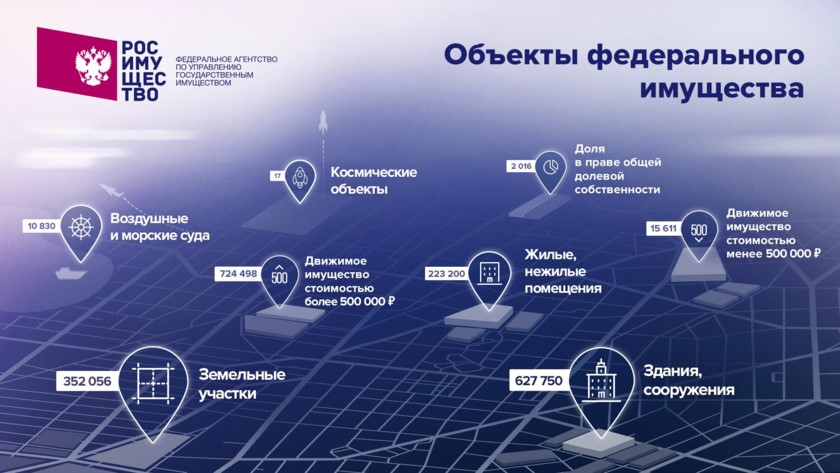
Part of the gigantic scheme of companies privatised at the hands of Dmitrij Mazepin
Like all oligarchs, Mazepin’s fortune began with the privatisation of state companies after the end of the USSR. In 1992 Mazepin founded the insurance company Infistrakh[24], which was closed in 2015 for fraud[25]. Between 1993 and 1995 he was called upon to organise the international trade department of the newly founded commercial bank Belarusbank[26] and, when he resigned, his pockets full of money and bank guarantees, he founded Bank Falcon in Moscow[27], of which he was also chairman of the board of directors[28], and led it until a trial for fraud, for which the bank lost its licence in 2007[29] and was then liquidated[30].
The collapse of Falcon caused the collapse of Infistrakh, which was one of the largest shareholders[31]. At the same time, Belnafta, a Moscow oil company[32] whose shareholders are Falcon Bank (49%), Infistrakh (49%) and Mazepin (2%)[33], also failed due to fraudulent bankruptcy[34]. Finally, the financial company Flora Moskwa went bankrupt. Its liquidation will last until 2016[35], and its collapse will be yet another blow to its majority shareholder, Infistrakh[36]. The company will also be investigated on suspicion of supporting terrorism and money laundering by criminal gangs[37].
In a normal country, this would cut short Mazepin’s career. But he was saved: he was hired as a manager at Raznoimport, one of the most important steel companies in the country[38]. The giant Alfa Group entrusted him with the task of saving some factories of the TNK group and resolving the internal war by means of a targeted purge – which Mazepin won by kicking out the managers linked to the losing partner, Viktor Paliy[39], earning his first praise among Putin’s friends[40]. Also because one of Mazepin’s companions in these adventures is Viktor Khmarin, a schoolmate and brotherly friend of the president[41]. Putin and Khmarin save Mazepin when the Moscow police discover that, behind Flora, there is a secret shareholder, the offshore bank TKB Mosprom Llc Ngerulmud (Micronesia), which illegally sends 3 million dollars a month from Russia through the Latvian embassy in Moscow[42].
In 1999, he made a quantum leap: first an assistant, then (from 2002) a powerful[43] deputy to Vladimir Malin, the head of the RPRF (Russian Federal Property Fund), the body that appoints the oligarchs who benefit from privatisation[44]. In the first dispute, over the Krasnoye Sormovo shipyards, Mazepin, with a series of stratagems bordering on legality, managed to ensure that the Georgian oligarch Kakha Bendukidze[45] received the entire company practically free of charge[46]. The same happened in the following years with the privatisation of 6% of the oil giant Lukoil[47], then with the holding of the coal mines Kuzbassugol[48], and finally with the cession of Eastern Oil Company to the YUKOS group[49].
From the RFPR to the birth of Uralchem

Uralchem’s sprawling facilities in Berezinki, Urals[50]
The oligarchs thanked Mazepin by electing him to the boards of directors of the new giants of the Russian economy: Sibur Holding (controlled by Gazprom)[51], from which Mazepin obtained bank guarantees to set up his own group[52]; the Rosneft group, the Novorossiysk Shipping Company and AK Transneft[53]. In each of these positions, Mazepin has operated in an unscrupulous manner, often bordering on the limits of legality[54]. The Russian government placed alongside him another manager who grew up in the USSR and became powerful through privatisation: Dmitrij Osipov, who since 2002 has been the director of an oil trading company, Sibur-Khimprom ZAO Perm[55]. From then on, Osipov followed Mazepin into Khimprom, into Kirovo-Chepetsk Chemical Plant and, finally, into Uralchem and Uralkali[56], before moving on to the Avisma Group, which produces titanium[57].
Sibur is in trouble because, due to the global collapse in raw material prices in 2002, it loses $132 million and finds itself in a liquidity crisis with $1.54 billion in short and medium-term debt[58]. Mazepin performs the miracle of convincing the creditor banks that he and CEO Alexander Ryazanov have spent money to modernise and rationalise the plants, to build a power plant (necessary to increase production) and that from now on SIbur’s costs will fall by almost half[59].
He kept his promises, decided to set up his own business, and with the money guaranteed by friends, plus an unspecified sum that he earned from the sale of the second tyre factory in Russia, the YASHZ Yaroslavl Tyre Plant[60], which passed from Sibur to the state bank VEB Vnesheconombank, he began to buy production branches of the Siberian-Ural Gas Energy Company and prepared to found his own empire[61].
In March 2004 Mazepin founded Konstruktivnoe Bureau ZAO Moscow[62], which bought small and medium-sized chemical companies, which were later transferred under the control of the Uralchem holding company[63]. Konstruktivnoe Bureau is owned by Crimson Marketing Ltd. Tortola (99.36%) and trustee Artemiy Andreevich Kochetkov[64], and will remain active until the completion of Mazepin’s acquisition plans in February 2009[65]. The collaboration with Kochetkov continues, as the latter administers 35 offshore companies (in the meantime liquidated) owned by Mazepin[66].
In just a few months, Uralchem bought all the nitrogen-ore factories that until then had been controlled by Gazprom, first and foremost Mezhregiongaz[67] and AHK Agrochemical Corporation Azot ZAO, which includes the huge Kirovo-Chepetsk Chemical Plant[68]. Azot is the most important of these: founded in 2000 on the initiative of Mezhregiongaz and the Interkhimprom group, its industrial hub produces various fertilisers, ammonia and many other chemical products for the global market[69]. With what money, this remains a mystery, because despite the support, Mazepin and his partners do not have the necessary funds available[70].

AHK Azot headquarters in Kirov[71]
According to the Russian authorities, Mazepin cheated Gazprom: “The Uralchem holding was established on the basis of the assets of AHK Azot”[72] (…). “This example clearly shows how Mazepin literally “flooded” Gazprom with loyal top managers so that they, like harmful bacteria, began to destroy the structure of the gas monopolist, so that Mazepin could “chop off” more of its resources for himself”[73].
The transfer took place in a series of extremely opaque steps, about which for years there was the fear that the criminal investigations, begun in Kirov[74], the city where Azot was based, would undo everything[75]. But Mazepin now has quite powerful friends, and certain things can no longer happen to him. His partner Nikolai Gornovsky moved to London, Mazepin remained in Moscow, but started to buy London real estate for the Russians who were fleeing[76]. The authorities, first of all RFPR, do nothing – and the head of this agency, Vladimir Malin[77], receives as a gift some shares of Konstruktivnoe[78].
At the beginning of 2005, Mazepin and Uralchem control the largest fluoroplastics factory in Asia (KChKhK Kirovo-Chepetsk), 50.8% of Russia’s largest organofluoride factory (Halogen)[79], its international chemical trading company Techtrading ZAO Moscow[80], which is first transformed into a holding company and then merged into Berived Trading of the Virgin Islands[81]. Through Konstruktivnoe, in the following months all the shares of all the companies are transferred directly under the patrimonial control of Mazepin[82], who thus personally controls 25% of the Russian chemical market[83].
With the money he earned, Mazepin began to buy up companies in difficulty, with the intention of rehabilitating them, starting with VMU Voskresensk Mineral Fertilizers[84] and continuing with Mineral Fertilizers Plant CJSC and Cypriot Assethill Holdings Ltd Nicosia[85]. He managed to bring them back to profitability and to resolve, in ways that were not always transparent, all the disputes linked to their previous activities, and brought them under the umbrella of a new Uralchem Holding founded in Nicosia, on the island of Cyprus[86]. After the years of loyalty to the homeland, now Mazepin too is beginning to take out of the country the capital earned from the activity of his industries.
The Togliattiazot case and the Uralkali case

A picture of the TogliattiAzot factories in Samara: the main employer, the one that pays the highest wages, the one most involved in building infrastructure (houses, roads, schools, hospitals) for the inhabitants of the area[87]
In 2007, Mazepin launched his attack against the ToAZ Togliattiazot OJSC, and he did so with all the force of his power, so much so that the president of the company, Vladimir Makhlai, went to the police with his son Sergei and denounced Mazepin for threatening his life[88]. The Makhlai family lives in London, and Sergei has become a citizen of the United States[89], so in Russia, where he had made a career in Yeltsin’s time, he is no longer very popular[90]. Mazepin denied it, and that was that[91].
The war between Mazepin and Makhlai lasted until 2012[92], when the Russian judiciary convicted the ToAZ management of tax fraud[93], the Makhlai went into hiding in the US[94], and Mazepin took over the factory[95]. The offshore companies through which the Makhlai controlled ToAZ (Bairiki Inc. Panama[96], Kamara Ltd. Gibraltar[97], Instantania Holdings Ltd. Tortola[98] and Trafalgar Developments Ltd. St. Hélier) denounce Mazepin before the Dublin Court, Mazepin denounces the four companies before the Moscow Court, The two proceedings are not yet concluded[99].
In 2009, with a loan from Sberbank for 5 billion roubles and an issue of equities from VTB Bank for 4.5 billion roubles, Uralchem Holdings buys 20% of Uralkali, the largest fertiliser factory in the former Soviet Union[100]. The company is the heart of the Belarusian economy: the rest of its ownership is divided between the oligarchs Filaret Galchev and Anatoly Skurov[101], the Russian politician Mikhail Prokhorov (who holds 27.09%)[102] and a friend of Putin’s, Suleyman Kerimov, who buys his stake[103].
At this point, the President of Belarus, Alexander Lukashenka, wants the ownership of Uralkali to pass into the hands of his most trusted friends, so he obtained the condemnation, before the court in Minsk, of Kerimov (who is hiding in England), his general director, Vladislav Baumgertner, who will have to spend the next five years under house arrest[104], and the deputy director, Andrey Musikhin[105].
The Russian secret service (FSB) investigates the legality of some secret agreements between Mazepin and Lukashenka[106], but the only thing they obtain is the release of Musikhin, who has cooperated, after which they close the investigation, while Uralkali moves its central sales office to Switzerland[107] and Mazepin, with the approval of the Belarusian government, in December 2020 becomes the sole owner of Uralkali[108].
The Chemezov case and the landing in Africa
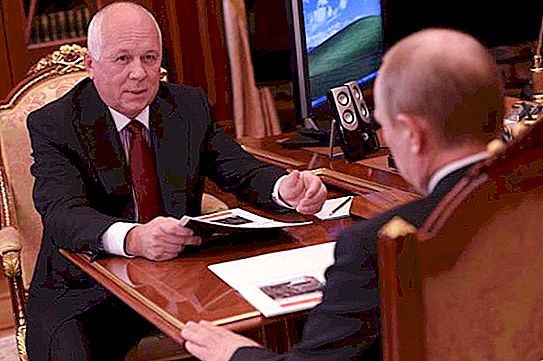
Serghey Chemezov in conversation with Vladimir Putin[109]
On 28 April 2014, Russian Lieutenant Colonel Sergey Chemezov, along with six other Russian citizens and 17 companies, was blacklisted by the US Federal Department of the Treasury (OFAC)[110]. The reason is their role in promoting, financing and providing logistical support for the invasion of Crimea by pro-Russian militias, which wrested the peninsula from Ukraine[111]. The main company affected by the embargo is Rostec, whose board of directors once included Vladimir Putin – a company that was later blacklisted by the European Union[112]. In return for logistical support after the invasion, Rostec was awarded a contract by the Russian government to build a power plant designed by Technopromexport, a Rostec group company[113].
Chemezov belonged to the same KGB unit in which he served Putin in East Germany[114] and, for this reason, in 1999 he was appointed president of the arms factory Promexport and the military technology factory Rosoboronexport[115]. Rostec was formed in 2007 from the merger of these two factories[116]. Chemezov also sits on the board of directors of Rosneft and Roscosmos[117]. In March 2014, Mazepin offered him a seat on the board of directors of Uralkali[118]. At the same time, the Kremlin discussed the possibility of bringing Rostec into the Belarusian company’s share capital[119]: ostensibly to curb Mazepin’s expansion, in reality to save him, because, starting in 2010, the toy broke, Uralchem began to have difficulty paying off its debts with banks and, due to a severe liquidity crisis, ended up on the brink of bankruptcy[120].
The Kremlin’s attempt is motivated by the fear that Mazepin’s money would disappear from Russia, since in 2009 the sale of Uralchem’s fertilisers was transferred to the group’s Latvian subsidiary[121], and Mazepin applied for and obtained a residence permit in Riga[122]. The oligarch was abandoned by his wife, who accused him of having a serious alcohol problem and of losing control over his personal spending[123]. What is certain is that by December 2011, Uralchem’s debt had reached USD 930.8 million[124]. Things are no better for Uralkali, which for ten years has been closing its accounts with losses running into millions of dollars[125] and, in 2018, broke through the wall of 5.5 billion dollars, and found itself practically in a state of insolvency[126], saving itself by selling 10% to Sberbank[127].
According to Russian law, Uralchem should already have been put into liquidation in 2018, but it negotiated a debt deferral agreement that suspended the state’s decision[128]. An agreement made despite state agencies suspecting that Mazepin, instead of repaying debts, is trying to hide as much money as possible abroad, proceed with the merger between Uralchem and Uralkali, and then let the whole group go bankrupt[129].
A trail of environmental disasters

The countryside around the Vyatka River, burnt by water poisoning[130]
Uralchem is not only a source of corruption and financial losses, it is also a huge environmental destroyer – an issue known to management, largely inherited from the industrial system of the Soviet Union, and which, especially in the Kirov region, has always been a cause for popular protest and, at the time of the takeover of the Kirovo-Chepetsky factory, became serious[131]: In 2005, health authorities discovered that the factory had been discharging surplus ammonium, benzene and other toxic waste into the Vyatka River for years[132], which caused poisoning of fields irrigated with river water[133].
When Mazepin bought KChKhK, claiming not to know anything about it, the controls were suspended[134] and even a subsequent random check, concluded with gruesome results, was ignored, and Mazepin was able to continue working[135]. Today, in addition to the Vyatka River, Lake Prosnoye, of which the Vyatka is the main tributary, has its bottom covered with chemical residues[136]. When even the drinking water began to be poisoned, the people of Kirov took to the streets against Mazepin and the factory[137].
But things continued to get worse: a new general director, Sergei Drinevsky[138], was appointed, and he started to hide from the public even the fatal accidents caused by the deterioration of the plants[139]: Mazepin has no money to modernise anything, machines often explode, and the incidence of respiratory cancer in the whole area continues to grow[140]. This time there were civil trials: each person harmed by the ecological disaster was awarded 9000 roubles (just over 100 euros) in damages[141].
In the criminal proceedings, which began in 2014, Drinevsky was chosen as a scapegoat, he was fired, the trial against him has not yet ended[142]. But in the area of the VMU Voskresensk Mineral Fertilizers factory, also headed by Drinevsky, several completely inadequate and abandoned toxic waste storage warehouses were discovered[143]. As soon as the news spread, the citizens of Voskresensk took to the streets in protest[144]. The result was a new criminal investigation, which ended in nothing – until it was discovered that the heads of the local health authorities had been bribed and the results of chemical tests had been falsified in order to cover it all up[145]. There is nothing to be done: Uralchem not only controls the two factories, but also a large part of the city’s real estate and is so powerful that it appoints members of municipal offices and senior police and political figures[146].
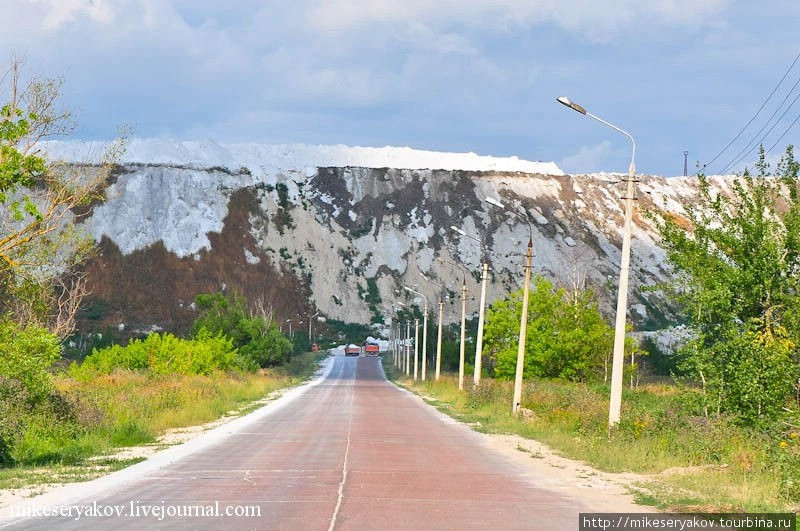
The mountain of toxic waste and poisonous phosphates generated by the VMU factory in Voskresensk[147]
Fortunately, the judiciary continued to investigate, and was able to prove that Uralchem had for years paid bribes to the Mayor of Voskresensk, Yuri Sleptsov[148], through a complex system whereby ESKMO, a state-owned company run by Sleptsov, received a shareholding in a Mazepin company, OOO Uralkhimtrans, and this was then bought back at an exaggerated price, establishing new more or less fictitious subsidiaries[149]. At the same time, another state-owned company active in the Voskresensk region, MUP SEZ Housing and Utilities, was sold to Mazepin and merged with Uralchem[150].
On 20 July 2010 Sleptsov was arrested in the act of receiving an envelope containing 200,000 roubles[151]. A second bribe had just been paid to finance the local hockey team Khimik – and the two facts led to Sleptsov being sentenced to pay a fine of 18.1 million roubles, which corresponds to around 200,000 euros[152]. The person who personally paid the bribe on behalf of Uralchem, VMU director Murad Chaparov, was fired, but was later hired as director of the Uralchem factory in Azot[153].
Nazepin has another important friend in Kirov: Governor Nikita Belykh, who at the height of Uralchem’s difficulties in 2011 signed a cooperation agreement between the Kirov Oblast and Uralchem for 200 million roubles, in return for which Uralchem built a kindergarten, 90 new flats and installed police cameras in Kirovo-Chepetsk’s bad neighbourhoods[154]. Back in 2009, the governor blocked a criminal investigation against Uralchem’s management for polluting the Kama River with its Promkanal OJSC Bereznyaki and Silvinit JSC Perm factories[155]. From then on, a large part of the population began to believe that the Governor was also on Mazepin’s pay list[156], not least because, with the support of the Governor and the oligarch Alexander Lebedev[157], Mazepin had been elected as Kirov’s representative in the Duma – the Russian federal parliament[158].
Mazepin’s political career came to an end shortly afterwards, when it was discovered that he was financing (despite having been elected in the United Russia lists) the opposition party Fair Russia[159], the Liberal Party of Latvia, led by the former mayor of Riga Nil Ushakov and the Latvian neo-fascist party “Visu Latvijai!” (Everything for Latvia!). (Everything for Latvia!) of Raivis Dzintars[160]. Mazepin resigned from the Duma, moved to Latvia, promised to buy FC Skonto Riga and also moved the holding company of Uralchem[161]. Shortly afterwards the Riga City Council gives him a concession to build a logistics terminal for chemicals, the SIA Riga Rigafertilizer Terminal[162]. The Russian judiciary arrested Belykh in June 2016 while he was trying to expatriate 24 million roubles (about €400,000) and, in 2018, sentenced him for corruption to 8 years in prison and a fine of 48.2 million roubles[163].
Uralchem crosses the border
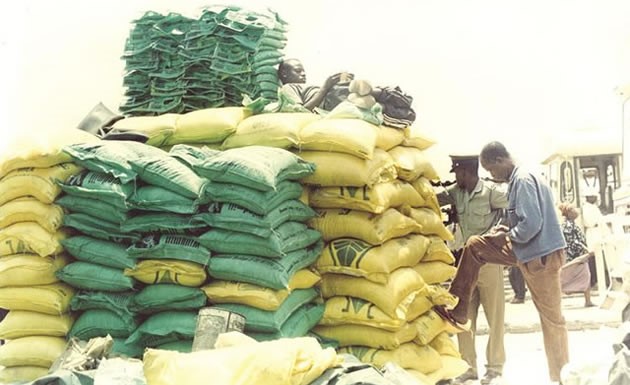
Police checks on Chemplex fertiliser production in Zimbabwe, which was subject to international sanctions until it was bought by Uralchem[164]
Once Uralchem left Russia for Latvia, it began to regain momentum and invest on a global scale. In October 2019, it signed a contract, together with the Angolans of Grupo Opaia SA, to build an ammonia factory in Angola that will be capable of producing 1.2 million tonnes per year, will have an investment value of more than €1 billion and will be built in 2023[165]. For this factory, Uralchem already has booking contracts in Mozambique and, through the Port of Beita, with Zambia and Zimbabwe[166].
In the latter country Mazepin negotiated at length with the then President Emmerson Mnangagwa for the acquisition of the Chemplex Group[167]. Shortly afterwards, negotiations also began with the governments of Kenya, Togo and Ethiopia[168], and by December 2020, Uralchem had reached 750,000 tonnes of fertiliser sold on the African continent[169]. In recent months, negotiations have also begun with the government of Sudan[170].
Despite this expansion in Africa, Uralchem’s mainstay outside Russia remains Belaruskali in Belarus. Here too, Uralchem’s activities have been marked by corruption scandals, in particular over the $3 billion blocked in an account with the Cyprus Bank and the Laiki Bank, which, according to the judiciary, is allegedly in the possession of the former head of the KGB in Minsk, Viktor Vegera, a man linked to President Lukashenka[171]. At the end of the investigation it was discovered that the money had been evaded by the Russian tax authorities and belonged to Mazepin, who is continuing his retreat from Russia[172] and is therefore trying to buy favours not only in Latvia, but also in Belarus – for example by sponsoring 200 scholarships for particularly capable undergraduates, so as to prevent them, like all the country’s best students, from leaving the motherland and going to Poland to escape the dictatorship[173].
In August 2020, Mazepin went a step further, betting on the end of the Lukashenka regime, and financed the creation of a committee for the national salvation of Belarus[174], the Russian-Belarusian Business Council[175], which had been created in 2012 and had remained inactive until Mazepin got personally involved, dragging his friends in the main Russian companies (Rostec, Sberbank, VTB, Lukoil) into the adventure[176].
Valery Tsepkalo, one of the leaders of the Belarusian opposition, has enthusiastically welcomed the creation of the new committee[177], but the press is wary, because it believes that this is a move to keep control of Belaruskali even if the regime ends[178], given that Mazepin also enjoys excellent relations with Lukashenka[179]. But the Russian oligarch has quite other dreams: in September 2020, some journalistic sources (Rambler News[180], Livejournal[181] and Forbes[182]) announced that Mazepin is negotiating the possibility of presiding over a pro-Russian transitional government after the fall of Lukashenka, and he is doing so because he sees this as his big chance to get his hands on the money he would need to pay his debts[183].
The need to feel important
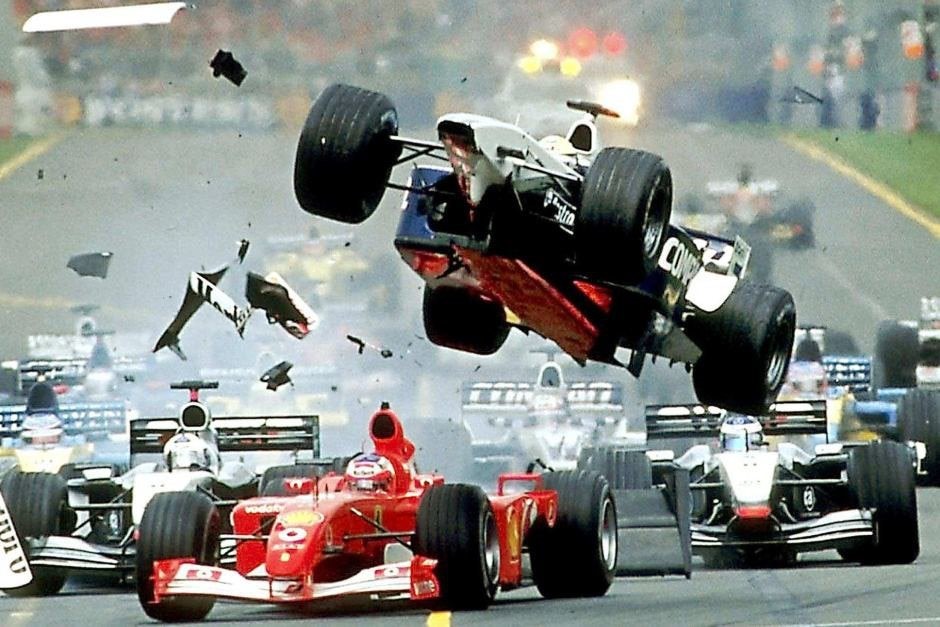
15 April 2021: Nikita Mazepin’s debut race in the Bahrain Grand Prix ends after 800 metres as he loses control of his Haas Ferrari at the first corner and runs off the track[184]
In this situation, Mazepin struggles not only for the survival of his empire, but also for his image. It is only human to seek success in order to combat one’s own frailties, and it is obvious that a man who has grown up above all through his intelligence, his unbridled ambition and unscrupulousness – as well as his political and military connections – must now feel in crisis: what he thought he had built is crumbling, at home his ex-wife has made scorched earth for him in Moscow’s intellectual and plutocratic circles, and his 23-year-old fiancée is certainly not enough to put things right. So he tries to ensure that his eldest son has what he could not have.
A few years ago, Dmitrij decided to sponsor his son’s passion for motor racing, paid for a car in Formula 2[185] and, after a couple of years, tried to get him into Formula 1, becoming a sponsor of the Force India One team and offering to buy it[186], an attempt that failed because, when all was said and done, even if Mazepin tried to obtain through a lawsuit for damages what he had not obtained through the normal channels, he convinced the owners of the Indian licence and, soon afterwards, also those of Williams, with whom the Belarusian oligarch had made a new attempt, that it would have been better to avoid being linked to a businessman with an obviously uncertain financial position[187].
In October 2020 Mazepin made a new attempt with the Haas Racing Team[188], but it only came down to a sponsorship deal from Uralkali[189], and there was immediate talk of Nikita’s appointment as an official driver[190] – a nomination that was cancelled after the young man posted a video on Instagram in which he mistreated a girl who had climbed into his car[191], and a petition, signed by 46,000 people, was presented among motoring fans to demand Nikita Mazepin’s exclusion from Formula 1[192]. In the meantime he started racing, but with extremely disappointing results[193], crashing into a tree during his first race[194].
That is why it seemed right to draw the portrait of this all-too-subtle figure in the world of Russian oligarchs – one who, like many, grew up in the Yeltsin years in defiance of all market laws, thanks to state regalia, once left alone at the helm of an industrial empire, while accepting compromises and using any means, and using any means, legal or illegal, to become very rich and famous, in the end remains afloat only because of the first investment he made, the one that his wife advised him, thirty years ago, to buy real estate in what would later become Londongrad, and which now ensures him a secure income beyond his entrepreneurial incapacity.
[1] https://web.archive.org/web/20180130115317/https://assets.bwbx.io/documents/users/iqjWHBFdfxIU/rJRW6xrdtLJE/v0 ; https://assets.bwbx.io/documents/users/iqjWHBFdfxIU/rJRW6xrdtLJE/v0
[2] Mark Hollingsworth, Stewart Lansley, “Londongrad: from Russia with cash”, Harper & Collins, London 2010
[3] https://www.newsler.ru/economics/2010/04/30/mazepin1
[4] 2013.07.02 Russian Newspaper, Chemistry Lessons: What allowed the giant of the domestic industry to survive and become an industry leader – see also: https://rg.ru/2013/07/02/blagotvoritelnost.html
[5] Forbes https://www.forbes.ru/profile/dmitrii-mazepin
[6] https://www.espn.com/f1/story/_/id/30421021/who-nikita-mazepin-why-did-get-2021-haas-drive
[7] Bio at http://rucompromat.com/persons/mazepin_Dmitrij
[8] https://www.uralchem.ru/about/leadership/
[9] http://rucompromat.com/persons/mazepin_Dmitrij
[10] https://www.kp.ru/daily/24597.3/763966/
[11] https://www.rbc.ru/society/01/02/2016/56af7c5d9a7947478fb64de4 ; https://www.forbes.ru/profile/dmitrii-mazepin
[12] https://www.tatler.ru/tatlers-debutante-ball/anastasiya-mazepina-na-balu-debyutantok-tatler
[13] https://www.tatler.ru/tatlers-debutante-ball/svetskaya-moskva-na-balu-debyutantok-tatler/gallery/13383/226340
[14] https://www.tatler.ru/tatlers-debutante-ball/anastasiya-mazepina-na-balu-debyutantok-tatler
[15] https://red-nadia.livejournal.com/924189.html ; https://ru.sm.news/vice-miss-rossiya-2018-mogla-samoizolirovatsya-iz-za-koronavirusa-55717/
[16] http://www.bolshoyvopros.ru/questions/2919240-violetta-tjurkina-skolko-let-biografija-kakoj-rost-kakie-dostizhenija.html
[17] https://whoiswhopersona.info/archives/59138
[18] https://www.kp.ru/daily/24597.3/763966/
[19] https://organicwoman.ru/author/krasavceva/
[20] https://news.tut.by/culture/50183.html
[21] https://www.listennotes.com/podcasts/%D0%B8%D0%B4%D0%B8-%D0%BD%D0%B0%D0%BA%D1%83%D0%B9-%D1%81-%D0%B0%D0%BB%D0%BB%D0%BE%D0%B9-%D0%BA%D1%80%D0%B0%D1%81%D0%B0%D0%B2%D1%86%D0%B5%D0%B2%D0%BE%D0%B9-%D0%B0%D0%BB%D0%BB%D0%B0-%D0%BA%D1%80%D0%B0%D1%81%D0%B0%D0%B2%D1%86%D0%B5%D0%B2%D0%B0-XYAvJBFtfLD/
[22] Official web-site: https://zdorovierusskie.ru
[23] https://organicwoman.ru/author/krasavceva/
[24] http://rucompromat.com/persons/mazepin_Dmitrij
[25] https://www.insur-info.ru/orgsandcomps/846/ ; https://www.banki.ru/insurance/companies/infistrah/
[27] https://www.rbc.ru/companies/id/1037700023877-aktsionernyij-kommercheskij-bank-falkon-otkryitoe-aktsionernoe-obschestvo/
[28] https://www.forbes.ru/profile/dmitrii-mazepin
[29] https://www.banki.ru/banks/memory/bank/?id=389438
[30] https://www.cbr.ru/banking_sector/credit/coinfo/?id=450000477
[31] https://zachestnyibiznes.ru/company/ul/1037700023877_7711057310_AKB-FALYKON-OAO
[32] https://www.forbes.ru/profile/dmitrii-mazepin
[33] https://zachestnyibiznes.ru/company/ul/1077746862247_7713046071_BELNAFTA
[34] https://sbis.ru/contragents/7713046071/771301010
[35] https://www.kommersant.ru/doc/325826 ; https://www.cbr.ru/banking_sector/credit/coinfo/?id=450000688 ; https://zachestnyibiznes.ru/company/ul/1027739082425_7744000197_AO-KB-FLORA-MOSKVA
[36] https://focus.kontur.ru/search?query=%D0%98%D0%BD%D1%84%D0%B8%D1%81%D1%82%D1%80%D0%B0%D1%85&country=RU
[37] https://www.banki.ru/banks/memory/bank/?id=10688380 ; https://www.banki.ru/news/lenta/?id=10688150
[38] http://www.artus.ru/index.asp?rid=535 ; http://rucompromat.com/persons/mazepin_Dmitrij
[39] https://novayagazeta.ru/articles/2002/02/11/15780-privatizatsiya-privatizatorov ; https://www.rbc.ru/society/11/11/2020/5fac12c79a794797b6fca8e6 ; https://mosmonitor.ru/news/society/teni-proshlogo-ili-Dmitrija-mazepina
[40] http://rumafia.net/ru/dosje/179
[41] https://www.kommersant.ru/doc/351302
[42] https://www.kommersant.ru/doc/228712 ; https://lenta.ru/news/1999/10/25/latvia_nalog/ ; https://og.ru/articles/2012/07/12/33026
[43] https://novayagazeta.ru/articles/2002/02/11/15780-privatizatsiya-privatizatorov
[44] https://www.kommersant.ru/doc/325826 ; https://rg.ru/2013/07/02/blagotvoritelnost.html ; https://www.forbes.ru/profile/dmitrii-mazepin ; https://www.kommersant.ru/doc/310210
[45] In Russia, Bendukidze was known as an entrepreneur, in Georgia as a statesman, in Ukraine hopes for economic reforms were pinned on his name. Kakha Bendukidze died in London in November 2017 at the age of 58: https://www.rbc.ru/business/17/11/2014/5466085ecbb20f54d29e351d ; https://www.bbc.com/russian/international/2014/11/141114_bendukidze_georgia_minister_death
[46] PJSC Krasnoe Sormovo Plant (part of the United Shipbuilding Corporation) is one of the leading shipbuilding and machine-building enterprises in Russia. After a fifty-year pause, Krasnoe Sormovo returned to the construction of dredging vessels required for dredging operations in Russian ports; https://www.niann.ru/?id=24047 ; https://og.ru/articles/2012/07/12/33026
[47] 2013.07.02 Chemistry Lessons: What allowed the giant of the domestic industry to survive and become an industry leader; https://rg.ru/2013/07/02/blagotvoritelnost.html ; https://www.kommersant.ru/doc/325826 ; https://alumni.mgimo.ru/page/adaptive/news/6249/?ssoRedirect=true&ssoRedirect=true&ssoRedirect=true&ssoRedirect=true
[48] Nowadays called Severny Kuzbass Coal Company JSC Berezovskiy, Kemerovo region (part of TALTEK Group of Companies) http://www.kuzcoal.ru/index.php?lang=ru ; https://www.kommersant.ru/doc/325826 ; https://og.ru/articles/2012/07/12/33026 , https://ksonline.ru/nomer/ks/-/id/16784/
[49] https://versia.ru/kak-gosudarstvennye-lyudi-stanovyatsya-milliarderami
[50] https://globuc.com/news/uralchem-intends-to-spend-over-2-7-million-euro-on-nitrogen-ecology-projects/
[51] https://www.rbc.ru/economics/03/06/2002/5703bf1a9a7947afa08cd313
[52] https://og.ru/articles/2012/07/12/33026
[53] https://www.rbc.ru/economics/03/06/2002/5703bf1a9a7947afa08cd313
[54] https://versia.ru/kak-gosudarstvennye-lyudi-stanovyatsya-milliarderami
[55] https://www.newsko.ru/articles/nk-250024.html
[56] https://www.forbes.ru/profile/379165-Dmitrij-osipov
[57] http://www.vsmpo.ru/ru/ ; https://www.newsko.ru/news/nk-6343283.html
[58] http://oldtmt.vedomosti.ru/sitemap/free/2002/11/article/sibur-posts-132m-loss-but-says-all-is-in-order/242206.html
[59] http://oldtmt.vedomosti.ru/sitemap/free/2002/11/article/sibur-posts-132m-loss-but-says-all-is-in-order/242206.html
[60] https://www.kommersant.ru/doc/422277
[61] https://www.kommersant.ru/doc/422277
[62] https://zachestnyibiznes.ru/company/ul/1047796185722_7705588747_OOO-KONSTRUKTIVNOE-BYuRO ; https://oilcapital.ru/news/markets/30-10-2007/konstruktivnoe-byuro-konstruiruet-holdingi
[63] https://www.forbes.ru/profile/dmitrii-mazepin
[64] https://checko.ru/company/konstruktivnoe-byuro-1047796185722
[65] https://zachestnyibiznes.ru/company/ul/1047796185722_7705588747_OOO-KONSTRUKTIVNOE-BYuRO
[66] https://checko.ru/company/konstruktivnoe-byuro-1047796185722?extra=connections
[67] In September 2006, he was detained in the Airport of Frankfurt-am-Main, he was accused of selling the largest nitrogen fertilizer enterprise in Russia – Azot, owned by Gazprom, at a cheap price to “his” structures in 2002-2003. The damage, according to the investigation, amounted to 13.5 million rubles. They also wanted to find out from Gornovskiy why he needed 25.5 million rubles for a design project of a one-room apartment, which he borrowed from Gazprom for 20 years, – see more: https://www.newsru.com/finance/07Sep2006/gazsled.html ; http://www.finmarket.ru/news/523289
[68] https://lenta.ru/articles/2016/11/15/dinastiya/
[69] https://chepetsk.ru/news/2003-10-13.html
[70] http://rumafia.net/ru/dosje/179
[71] https://www.dw.com/de/leben-im-schatten-des-krieges/a-19527788
[72] http://rumafia.net/ru/dosje/179
[73] https://www.volga-tv.ru/news/ekonomika/2012/n-Dmitrij-Mazepin-i-ego-biznes-brigada/
[74] https://chepetsk.ru/news/2003-11-15.html
[75] https://novayagazeta.ru/articles/2003/02/10/19475-vnutrividovaya-borba-gosudarevyh-lyudey ; https://www.newsru.com/finance/07Sep2006/gazsled.html ; http://www.finmarket.ru/news/246085
[76] https://www.newsru.com/finance/18feb2003/gas.html ; https://versia.ru/kak-gosudarstvennye-lyudi-stanovyatsya-milliarderami ; http://rumafia.net/ru/dosje/179
[77] It is noteworthy that in the same 2004 Vladimir Malin lost his position. A criminal case was opened against him on charges of facilitating the receipt of state blocks of shares in favor of private individuals. All actions of Malin, according to the prosecutor’s office, fell under two articles of the Criminal Code of the Russian Federation – commercial bribery, abuse of office – and dragged on for 7 years in prison. However, the judge sentenced Malin to four years of suspended imprisonment with a five-year probationary period: https://www.volga-tv.ru/news/ekonomika/2012/n-Dmitrij-Mazepin-i-ego-biznes-brigada/
[78] https://www.rusbonds.ru/enwsinf.asp?emit=6778&nid=469238 ; https://www.vedomosti.ru/library/news/2005/02/08/credit-prive-prodal-60-akcij-kirovo-chepeckogo-himkombinata-dmazepinu-za-150-mln ; https://www.volga-tv.ru/news/ekonomika/2012/n-Dmitrij-Mazepin-i-ego-biznes-brigada/
[79] https://expert.ru/ural/2005/09/09ur-upov1_65035/
[80] https://www.kommersant.ru/doc/549919
[81] https://www.rusprofile.ru/id/9315242
[82] https://alumni.mgimo.ru/page/adaptive/news/6249/?ssoRedirect=true&ssoRedirect=true&ssoRedirect=true&ssoRedirect=true
[83] https://alumni.mgimo.ru/page/adaptive/news/6249/?ssoRedirect=true&ssoRedirect=true&ssoRedirect=true&ssoRedirect=true
[84] https://www.uralchem.ru/about/assets/64/ ; http://www.compromat.ru/page_22589.htm
[85] https://versia.ru/biznesmen-dmitrij-mazepin-ishhet-podderzhki-u-mistikov-i-magov
[86] https://rb.ru/article/u-uralhima-nashelsya-vtoroy-sovladelets/6321977.html
[87] https://www.gazeta.ru/social/2020/08/25/13210891.shtml ; https://newizv.ru/news/economy/23-10-2019/doklad-imperiya-mazepina-zachem-vladeltsu-uralhima-nuzhen-tolyattiazot
[88] https://iz.ru/news/580508
[89] https://www.irishtimes.com/business/energy-and-resources/russia-raider-attack-case-makes-it-to-the-high-court-1.2864787
[90] https://news.rambler.ru/other/44778366-belorusskiy-gambit-s-sodovym-privkusom/ ; https://www.forbes.ru/news/232094-uralhim-obvinil-osnovnyh-aktsionerov-tolyattiazota-v-moshennichestve ; https://www.vedomosti.ru/newspaper/articles/2005/12/29/bolshoj-peredel
[91] https://www.gazeta.ru/business/news/2014/12/09/n_6727153.shtml
[92] https://www.forbes.ru/milliardery/419055-bitva-za-trubu-pochemu-vladelec-tolyattiazota-obvinyaet-uralhim-v-ispolzovanii
[93] https://www.forbes.ru/milliardery/419055-bitva-za-trubu-pochemu-vladelec-tolyattiazota-obvinyaet-uralhim-v-ispolzovanii
[94] https://versia.ru/kak-vladelec-uralxima-i-uralkaliya-dmitrij-mazepin-sognulsya-pod-nepodyomnoj-noshej
[95] https://mosmonitor.ru/news/society/teni-proshlogo-ili-Dmitrija-mazepina
[96] https://opencorporates.com/companies/pa/437918
[97] https://opencorporates.com/companies/gi/26942
[98] http://www.info-clipper.com/en/company/virgin-islands/instantania-holdings-ltd.vgdeb9dmh.html
[99] https://www.forbes.ru/milliardery/419055-bitva-za-trubu-pochemu-vladelec-tolyattiazota-obvinyaet-uralhim-v-ispolzovanii
[100] https://versia.ru/biznesmen-dmitrij-mazepin-ishhet-podderzhki-u-mistikov-i-magov
[101] https://novayagazeta.ru/news/2013/12/02/83197-osnovnoy-vladelets-171-uralhima-187-Dmitrij-mazepin-pokupaet-20-171-uralkaliya-187
[102] https://novayagazeta.ru/news/2013/12/20/86755-prohorov-kupil-27-aktsiy-171-uralkaliya-187-mazepin-151-20
[103] Minsk announced their intention to open a criminal case into billionaire Suleiman Kerimov, the major owner of the potash giant, in August 2013. The documents received by Belarus’ Investigative Committee were sufficient for opening the case and putting Kerimov on the international wanted list. Kerimov was invited, along with Uralkali’s chief executive Vladislav Baumgertner, to meet with Belarussian Prime Minister Mikhail Myasnikovich. However, Kerimov failed to attend the meeting. Baumgertner, who was arrested in Minsk hours after the meeting, faces three to 10 years in prison on charges of abuse of power: https://www.themoscowtimes.com/2013/08/29/belarus-to-prosecute-uralkali-owner-a27235 ; https://novayagazeta.ru/news/2013/12/20/86755-prohorov-kupil-27-aktsiy-171-uralkaliya-187-mazepin-151-20
[104] https://www.themoscowtimes.com/2013/11/12/uralchem-owner-mazepin-tipped-as-possible-uralkali-buyer-a29500 ; https://www.themoscowtimes.com/2013/12/11/uralkali-ceo-baumgertner-placed-under-house-arrest-a30382
[105] https://59.ru/text/criminal/2020/02/04/66478525/
[106] http://www.moscow-post.su/economics/sledovateli_podbirajutsja_k_mazepinu18065/
[107] https://www.themoscowtimes.com/2014/05/21/worlds-biggest-potash-producer-uralkali-bullish-despite-sanctions-a35629 ; https://versia.ru/kak-vladelec-uralxima-i-uralkaliya-dmitrij-mazepin-sognulsya-pod-nepodyomnoj-noshej
[108] https://novayagazeta.ru/news/2016/07/08/123112-prohorov-prodal-dolyu-v-uralkalii ; https://www.rbc.ru/business/02/12/2020/5fc73c509a79476a07f44320
[109] https://eng.agromassidayu.com/sergej-chemezov-glava-korporacii-rosteh-a-313590
[110] https://www.treasury.gov/resource-center/sanctions/OFAC-Enforcement/Pages/20140428.aspx?source=post_page
[111] https://www.treasury.gov/press-center/press-releases/Pages/jl2369.aspx
[112] https://www.theguardian.com/world/2014/sep/12/europe-russia-sanctions-ukraine-kalashnikov
[113] https://www.consilium.europa.eu/media/21988/17022015-russia-sanctions-table-persons-and-entities.pdf
[114] https://www.treasury.gov/press-center/press-releases/Pages/jl2369.aspx
[115] https://rostec.ru/en/about/controls/sergey_chemezov/
[116] https://rostec.ru/en/about/controls/sergey_chemezov/
[117] https://rostec.ru/en/about/controls/sergey_chemezov/ ; https://carnegie.ru/commentary/79714 ; https://www.marshallcenter.org/en/publications/security-insights/political-elite-under-putin-0 ; https://www.treasury.gov/press-center/press-releases/Pages/jl2369.aspx
[118] https://www.reuters.com/article/russia-uralkali-board/russias-uralkali-elects-putin-ally-as-board-chairman-idUSL5N0MN3IM20140326
[119] https://www.reuters.com/article/russia-uralkali/update-1-russian-state-conglomerate-head-may-join-uralkali-board-sources-idUSL6N0LT2YA20140224
[120] https://mosmonitor.ru/news/society/teni-proshlogo-ili-Dmitrija-mazepina
[121] https://mosmonitor.ru/news/society/teni-proshlogo-ili-Dmitrija-mazepina
[122] http://perebezhchik.ru/person/mazepin-Dmitrij–arkadevich/
[123] https://mosmonitor.ru/news/society/teni-proshlogo-ili-Dmitrija-mazepina
[124] http://perebezhchik.ru/person/mazepin-Dmitrij–arkadevich/
[125] https://news.rambler.ru/other/44778366-belorusskiy-gambit-s-sodovym-privkusom/
[126] https://www.sberbank.com/ru/investor-relations/corporate-governance/sberbank-executive-board/president
[127] https://www.vedomosti.ru/business/articles/2018/12/06/788632-sberbank-uralkaliya ; https://versia.ru/biznesmen-dmitrij-mazepin-ishhet-podderzhki-u-mistikov-i-magov
[128] https://newizv.ru/news/economy/23-10-2019/doklad-imperiya-mazepina-zachem-vladeltsu-uralhima-nuzhen-tolyattiazot ; https://news.rambler.ru/other/44842004-kto-v-prezidenty-krayniy-belorussiyu-mozhet-vozglavit-skandalnyy-oligarh-iz-rossii/
[129] https://news.rambler.ru/other/44842004-kto-v-prezidenty-krayniy-belorussiyu-mozhet-vozglavit-skandalnyy-oligarh-iz-rossii/
[130] https://www.britannica.com/place/Vyatka-River
[131] https://www.volga-tv.ru/news/ekonomika/2012/n-Dmitrij-Mazepin-i-ego-biznes-brigada/
[132] s of 2012: For almost half a century, KChKhK dumped his industrial effluents, including radioactive ones, practically without treatment, into the floodplain of the Vyatka River. As a result, millions of tons of chemical and radioactive waste have accumulated in the area of the Kirovo-Chepetsk industrial hub. – There are almost 12 million tons of waste in the landfill, – Sergey Altobaev, a giornalist from Kirovo-Chepetsk, explains, – These are heavy metal, compounds of ammonium nitrogen and mobile fluorine, almost half a million tons of radioactive waste and a million tons of mercury. As a result, 300 hectares of forests, floodplain lakes and swamps are polluted. “Chemistry” begins to penetrate into the main aquifer of the region – Vyatka… Unfortunately, the issues of accumulated environmental damage at the legislative level have not yet been resolved, see more: https://bellona.ru/2012/05/17/kirovo-chepetsk-othody-himicheskogo-kom/
[133] http://rumafia.net/ru/dosje/179
[134] https://www.volga-tv.ru/news/ekonomika/2012/n-Dmitrij-Mazepin-i-ego-biznes-brigada/
[135] http://rumafia.net/ru/dosje/179
[136] http://rumafia.net/ru/dosje/179
[137] http://www.ecoindustry.ru/news/view/22607.html
[138] Sergei Drinevsky has worked in all the companies of Uralchem Group, moving from one position to another. Since June 2007 untill October 2007 he was heading Kirovo-Chepetsky Chemical Combine, in November 2007 he was also appointed Managing Director – Director of the branch of URALCHEM Management Company LLC. See more https://chepetsk.ru/news/2011-07-08-2.html 2010 to 2011 – Director of the KChKhK branch of URALCHEM, OJSC in Kirovo-Chepetsk, and since April 2012 – see more: https://www.uralchem.ru/press/news/novye_naznacheniya_v_gruppe_uralkhim_4403/?SECT=corporate_events
[139] https://www.volga-tv.ru/news/ekonomika/2012/n-Dmitrij-Mazepin-i-ego-biznes-brigada/
[140] http://www.ecoindustry.ru/news/view/22607.html
[141] https://m.polit.ru/article/2010/06/18/khchk/
[142] https://chepetsk.ru/news/2014-05-26-2.html
[143] http://www.ecoindustry.ru/news/company/view/22955.html
[144] http://www.ecoindustry.ru/news/company/view/22955.html
[145] https://www.volga-tv.ru/news/ekonomika/2012/n-Dmitrij-Mazepin-i-ego-biznes-brigada/
[146] http://www.ecoindustry.ru/news/view/22607.html
[147] The Open Pit Of Voskresensk – English Russia
[148] https://www.volga-tv.ru/news/ekonomika/2012/n-Dmitrij-Mazepin-i-ego-biznes-brigada/
[149] https://www.volga-tv.ru/news/ekonomika/2012/n-Dmitrij-Mazepin-i-ego-biznes-brigada/
[150] https://www.volga-tv.ru/news/ekonomika/2012/n-Dmitrij-Mazepin-i-ego-biznes-brigada/
[151] https://www.volga-tv.ru/news/ekonomika/2012/n-Dmitrij-Mazepin-i-ego-biznes-brigada/
[152] https://www.volga-tv.ru/news/ekonomika/2012/n-Dmitrij-Mazepin-i-ego-biznes-brigada/
[153] https://www.volga-tv.ru/news/ekonomika/2012/n-Dmitrij-Mazepin-i-ego-biznes-brigada/
[154] https://www.uralchem.ru/press/news/predsedatel_soveta_direktorov_kompanii_uralkhim_Dmitrij_mazepin_vstretilsya_s_gubernatorom_kirovskoy_4413/?print=Y&SECT=corporate_events
[155] http://www.ecoindustry.ru/news/company/view/22903.html
[156] https://versia.ru/kak-gosudarstvennye-lyudi-stanovyatsya-milliarderami
[157] Businessman Alexander Lebedev, who came to the Kirov region in 2011 and became a deputy of the Sloboda District Duma, was included in the list of the most impoverished millionaires over the past 10 years, he lost $ 1.5 billion, roughly 3/4 of his fortune. At the end of 2019, Lebedev’s fortune is estimated at less than $ 500 million. In the spring of 2015, he was deprived of his parliamentary powers in connection with the entry into force of the conviction: on September 16, 2011, while on the set of the NTV programs, Lebedev beat ex-head of Mirax Group Sergei Polonsky, inflicting two blows on the head on the air: https://www.newsler.ru/money/2020/01/09/eks-deputat-slobodskoj-rajonnoj-dumy-obednel-na-1-5-mlrd-dollarov
[158] http://www.zsko.ru/general/history/sostavs/index.php?ID=10515 ; https://www.forbes.ru/profile/dmitrii-mazepin
[159] https://www.infox.ru/news/229/97612-vladelec-uralhima-dmitrij-mazepin-finansiruet-rossijskuu-nesistemnuu-oppoziciu ; https://mosmonitor.ru/news/society/teni-proshlogo-ili-Dmitrija-mazepina
[160] https://www.infox.ru/news/229/97612-vladelec-uralhima-dmitrij-mazepin-finansiruet-rossijskuu-nesistemnuu-oppoziciu
[161] https://m.infox.ru/news/84/96932-vladelec-uralhima-i-goluboe-lobbi-latvii
[162] https://mosmonitor.ru/news/society/teni-proshlogo-ili-Dmitrija-mazepina ; https://m.infox.ru/news/84/96932-vladelec-uralhima-i-goluboe-lobbi-latvii
[163] https://www.rbc.ru/rbcfreenews/5fad42af9a794719c6afa911
[164] https://www.herald.co.zw/ofac-using-chemplex-zfc-as-scapegoats/
[165] https://www.uralchem.ru/press/news/URALKHIMpodvelitogiuchastiyavforumeRossiyaAfrika/?SECT=corporate_events
[166] https://www.uralchem.ru/press/news/URALKHIMpodvelitogiuchastiyavforumeRossiyaAfrika/?SECT=corporate_events
[167] https://www.uralchem.ru/press/news/URALKHIMpodvelitogiuchastiyavforumeRossiyaAfrika/?SECT=corporate_events
[168] https://www.uralchem.ru/press/news/URALKHIMpodvelitogiuchastiyavforumeRossiyaAfrika/?SECT=corporate_events
[169] https://news.rambler.ru/army/45353542-uralhim-i-uralkaliy-uvelichili-postavki-v-afriku-v-pyat-raz/
[170] https://www.uralchem.ru/press/news/URALKHIMiUralkaliynachnutpostavkiudobreniyvSudanv2021godu/?SECT=corporate_events
[171] https://novayagazeta.ru/articles/2013/04/10/54268-batkin-ofshor
[172] https://novayagazeta.ru/articles/2013/04/10/54268-batkin-ofshor
[173] https://www.rbc.ru/society/11/11/2020/5fac12c79a794797b6fca8e6
[174] https://www.rbc.ru/business/13/08/2020/5f35a79a9a79470ec9f5474c?
[175] http://rus-blr.tpprf.ru/ru/
[176] http://rus-blr.tpprf.ru/ru/members/ ; https://www.rbc.ru/business/13/08/2020/5f35a79a9a79470ec9f5474c?
[177] https://www.rbc.ru/rbcfreenews/5f36cd3c9a79478f962822cf
[178] https://www.atlanticcouncil.org/blogs/ukrainealert/sanctions-against-belarus-must-also-target-russia/
[179] https://www.ft.com/content/ff018cb2-5742-11e3-9624-00144feabdc0 ; https://www.ft.com/content/3da9dbd2-527e-11e3-a73e-00144feabdc0
[180] https://news.rambler.ru/other/44842004-kto-v-prezidenty-krayniy-belorussiyu-mozhet-vozglavit-skandalnyy-oligarh-iz-rossii/
[181] https://skurlatov.livejournal.com/6057162.html
[182] https://www.forbes.ru/biznes/408609-tam-tochno-budet-novyy-prezident-kak-uchastniki-spiska-forbes-reagiruyut-na-sobytiya-v
[183] https://news.rambler.ru/other/44842004-kto-v-prezidenty-krayniy-belorussiyu-mozhet-vozglavit-skandalnyy-oligarh-iz-rossii/
[184] https://www.reddit.com/r/formula1/comments/mlxzcd/oc_nikita_mazepin_is_the_first_driver_ever_to/
[185] https://www.bbc.com/russian/news-55163862
[186] https://www.rbc.ru/society/01/02/2016/56af7c5d9a7947478fb64de4
[187] https://www.grandprix247.com/2018/09/27/mazepin-company-sues-force-india-administrators/
[188] https://www.planetf1.com/news/dmitry-mazepin-haas-buyout/
[189] https://www.espn.com/f1/story/_/id/30421021/who-nikita-mazepin-why-did-get-2021-haas-drive
[190] http://www.nikitamazepin.com
[191] https://www.instagram.com/nikita_mazepin/ ; https://www.bbc.com/russian/news-55249540
[192] https://www.change.org/p/fia-remove-nikita-mazepin-from-formula-1
[193] https://www.racefans.net/2021/05/02/mazepin-penalised-for-holding-up-leader-despite-late-warning-by-team/ ; https://www.thefocus.news/sports/motorsport/f1/nikita-mazepin-fastest-lap-belgian-gp/
[194] https://wwos.nine.com.au/motorsport/f1-2021-nikita-mazepin-bahrain-grand-prix-horror-debut-weekend-for-russian-rookie/c3d8c8f5-8ef7-403c-b140-2ebcbd978c86
Leave a Reply